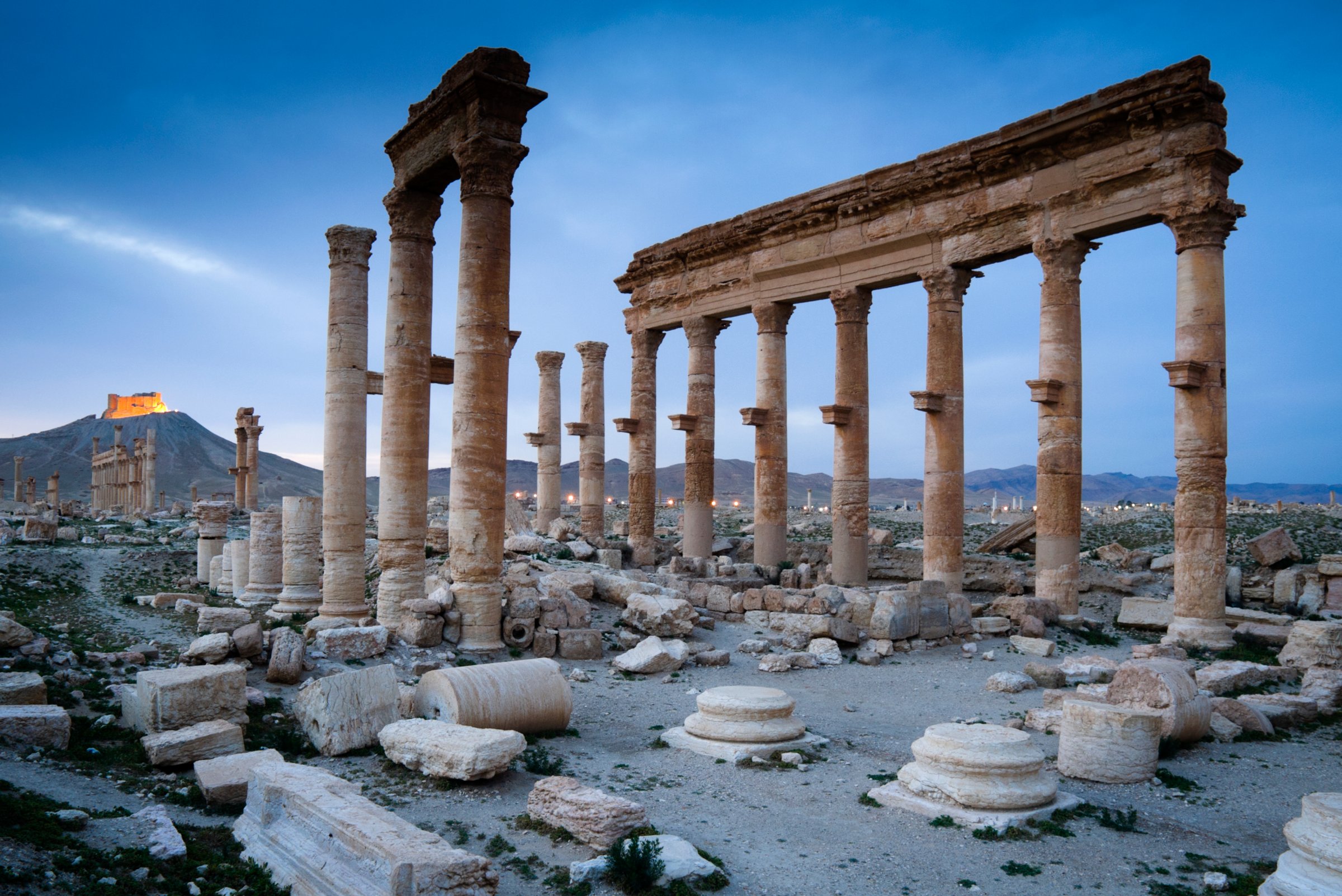
America lacks ruins. We have decay, but that is not the same thing. A ruin is the monument of a once-great civilization that is gone. In America, we have some remnants of the past, such as rock art and evidence of cliff dwellings in the Pacific Southwest. But the traveler to Europe or the Middle or Far East cannot help but be struck by how integral ruins are to the landscapes and the cities. There, the past rears itself up amidst the treated glass and shining steel of the present.
To live in an area of the world once dominated by Rome, for example, is to remember that even the greatest empires are fleeting. Even more, it is to develop a respect for the past that takes some edge off the smugness of the present. When we study the past in America, it tends to be our past—the Civil War, perhaps, or the Revolutionary War. Sometimes we stretch back to remember Native American culture. But children growing up in our major cities are not confronted by Mayan ruins or ancient temples. The medieval or ancient past is not palpable.
For many Americans, therefore, history exists only as a book, or perhaps a TV documentary. In Jerusalem or Amman or Paris or Athens, the past is where you live.
The particular horror of watching ISIS take a hammer to ancient sites is that ruins have clung to life for so long because previous generations have found their endurance eloquent. In an attempt to prevent ISIS from profiting from destroying these sites, the House passed a bill Monday to restrict imports on archaeological material from Syria.
The withered hand of the past reaches out to us, all the more powerful for its diminishment. Walking in the same structure where Socrates or Caesar walked awakens the lessons of mortality and immortality as no classroom lesson ever can. And to know that you also walk in the footsteps of all the pilgrims who followed, those who wished to feel Socrates with their feet, to stand in the same Senate as Mark Anthony, to feel the immensity of Angor Wat.
It’s possible to be parochial not only in space but in time. Some people believe the city or country where they live is the only one that counts. They are blissfully ignorant of other places and ways of life. But it’s equally foolish to think the time when they live is the only one that counts. When you see an ancient ruin, it becomes clear that we inhabit the world with the past as well as the future, and the present is a brief flash in the sustained pulse of time.
Contemplating ancient remains is an age-old human passion. We are drawn to that which reminds us of our own passage through time, as Rose Macaulay writes in the conclusion of her book A Pleasure in Ruins.
All these castles in ruin, and a thousand more, offer no security: They are shattered, shot-ridden. They crumble before our eyes. There is no security, which is what we always knew. That is the knowledge that opens the door to cherish what we have, and appreciate what we have lost. We know it better when we see what once was great and now is fallen.
More Must-Reads From TIME
- The 100 Most Influential People of 2024
- The Revolution of Yulia Navalnaya
- 6 Compliments That Land Every Time
- What's the Deal With the Bitcoin Halving?
- If You're Dating Right Now , You're Brave: Column
- The AI That Could Heal a Divided Internet
- Fallout Is a Brilliant Model for the Future of Video Game Adaptations
- Want Weekly Recs on What to Watch, Read, and More? Sign Up for Worth Your Time
Contact us at letters@time.com